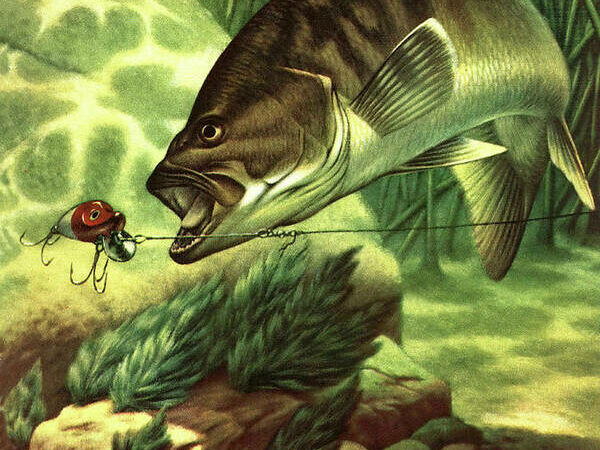Is Joe Rogan Good for Hunting?
Earlier this month the two most prominent personalities in hunting joined The Joe Rogan Experience to cover a wide range of topics including wolf reintroductions, potential “trophy hunting” bans, and perceptions around hunting private ranches vs. public lands.
Joe Rogan, Steve Rinella, and Cam Hanes are inarguably the three hunters with the greatest reach beyond the hunting community. Rogan hosts Spotify’s most listened-to podcast. In 2022 the New York Times declared that Rogan is “one of the most consumed media products on the planet.” Rinella has always spoken to a non-hunting audience through MeatEater’s field-to-table ethos. Hanes has aimed to introduce elite athletes (along with their fans) to bowhunting through his podcast and social media.
From an audience reach standpoint, the Rogan/Hanes/Rinella podcast eisode would be the equivalent of Johnny Carson inviting Fred Bear and Jack O’Connor onto the Tonight Show to talk about hunting.
As the editor-in-chief of OL, I considered the podcast episode and the commentary around it as a representation of two conflicting perspectives on how to “save hunting.”
The first perspective is that hunting’s greatest threats are internal: commercialization of wildlife, overcrowding and impossible draw odds thanks to too many new hunters and not enough habitat, and a misrepresentation of hunting to the general public through social media. If you share these opinions, it’s hard to see Rogan’s hunting episode as anything more than part of the problem.
The second perspective is that hunting’s biggest threats are external. Folks in this camp believe that we should be most concerned about ballot initiatives driven by anti-hunting groups, plus the growing effort to redefine how states manage wildlife and habitat — in which hunting is no longer a priority, or even necessary as a management tool. From this perspective more new hunters and the more folks who have a positive view of hunting are net positives. In his own way, Rogan is an evangelist for hunting, even if a lot of hunters like to talk shit about him.
The Rogan Problem
Rogan says he’s been hunting for about 10 years. Most of his experience comes from guided archery elk hunts on private land. This alone is enough to aggravate some Western hunters. Here is a typical Reddit comment:
“I haven’t listened to Joe Rogan since around the time he was just getting started bowhunting, and I remember it sounding obnoxious even then. Like, I’m glad you found a new hobby but maybe chill a little. I don’t need to hear about how amazing hunting is from someone who’s never had to deal with the actual challenges of modern hunting: finding a place to hunt, navigating hunting pressure, picking the right tags and seasons, and even finding the time/money to get out there enough. Take away all that and honestly, hunting isn’t really that difficult with modern equipment.”
I get this. If you’re a DIY rifle elk hunter who has been grinding it out on public land for years, it could be pretty frustrating listening to Rogan talk about how bowhunting is more fulfilling than gun hunting — after he just shot a massive bull during a guided hunt on private ground. Full disclosure: Last fall I hunted a private ranch in Utah that borders the one that Rogan often hunts, and it was “amazing.” The pure number of interactions my guide and I had with bugling bulls made for the most thrilling and fun elk hunt I’ve ever been on (and I ended up shooting a younger 6×6 bull, not a giant). If I ever get the chance, I would do it again, and trust me, you would, too. But I have also gotten my ass kicked on public lands enough times to know that this Utah private land hunt was not a good representation of what elk hunting is really like.
When I listen to Rogan’s hunting episodes, I often find myself worrying that he might miss some key details. Kind of like when your buddy, after a few bourbons, starts to tell an old story about you. You know it will be funny and entertaining, if not exactly accurate. For those of us who grew up in hunting families, hunting feels like our story. Why does Rogan get to tell it?
The deeper argument here is that Rogan is indirectly recruiting the wrong kind of hunters into hunting. If his hunting experience comes from shooting big bulls on expensive private hunts, then it’s likely that the audience he inspires to hunt will seek out that same kind of experience. More folks chasing trophy critters in the West and posting about it on social media is not what hunting needs right now, folks in this camp will say.
Steve Rinella’s own brother, Matt Rinella makes a version of this argument in a short segment of his Hunt Quietly podcast, which you can listen to below (it’s a rebuttal to a previous JRE hunting episode). Matt Rinella has been a consistent critic of hunter recruitment efforts and hunting media in general and considers Rogan to be a net negative for hunting.
The Rogan Benefit
There is good evidence of a looming anti-hunting storm that could very well wash away many of our hunting opportunities. In the face of this storm, arguing about who is the “right kind of hunter” amounts to quibbling over who gets to wear the life jacket while we should all be working together to batten down the hatches.
Here’s the gist of the issue. More activists from the animal-welfare movement are working to influence state wildlife commissions and deprioritize hunting as a management and funding tool. They argue that wildlife and habitat should not be managed for hunting but instead for the betterment and enjoyment of all, and more specifically for the animals themselves.
Kevin Bixby, executive director of Wildlife For All told OL’s Hunting Editor Andrew McKean in 2022 that predators should be considered the primary wildlife management tool by agencies, which should adopt values consistent with the animal-rights movement.
“If we want to save our own species, then we have to adopt an attitude of coexistence with all the other species,” said Bixby. “And we can’t do that if human needs are placed above other lifeforms. That is the bottom line. Some people will never agree to that.”
You can see this philosophy playing out in a variety of places recently. In 2022 Washington state closed its spring bear hunting season, even though the state wildlife director was in favor of keeping it open. In states like Colorado, animal-rights professionals have been appointed to the wildlife commission. There’s also a proposed ballot initiative in Colorado to “Prohibit Trophy Hunting,” which would effectively eliminate mountain lion hunting and bobcat hunting in the state. Then there’s the state’s controversial wolf reintroduction.
To the non-hunting, voting public, this general philosophy change may seem well and good. Wolves, bears, and mountain lions are cool. Trophy hunting is bad.
However we hunters know that predator species need to be managed (which means regulated hunting). We know that wildlands need to be funded and defended or they’ll be gobbled up amid resource extraction and development. We know that no one does more to conserve these critters and places than us. The problem is that non-hunters aren’t listening to us (or reading our publications).
But they are listening to Rogan. For example, OL has been covering Colorado’s potential mountain lion hunting ban and wolf reintroduction for months. None of the coverage has gained any viral traction to suggest that it has reached beyond our regular readership. I’m almost certain I would hear the same thing from my colleagues at other hunting publications covering these same issues.
Yet one short snippet on these topics from Rogan’s episode with Rinella and Hanes already has almost 600K views and 2,000 comments in just 12 days. If we are to have any hope of winning at the ballot box, that’s the kind of reach hunters are going to need.
Brian Lynn, the vice president of communication for the Sportsmen’s Alliance, agrees. His organization constantly battles anti-hunting efforts in the legal trenches and at the polls, so he knows better than most how the game is played — and won.
“Overall I’d say Rogan has had a positive influence with non-hunters,” Lynn says. “He reaches so many people, and most are predisposed to listen and learn. Plus, he’s not afraid to call anti-hunters lunatics, which we can’t do without looking petty or just preaching to the choir. His approach and examination of the underlying issues are usually solid. Plus, he digs deeper than face value, which is counter to most mainstream commentators. And, there’s really no other platform that can reach that many non-hunters outside of TV air-time buys.”
Over the years we’ve seen that even celebrities who enjoy hunting and fishing are reluctant to advocate for these pursuits. This is mostly because it creates undue controversy and negative commentary. Look no further than the hatred that Henry Winkler (known and loved for his role as the Fonz in Happy Days) suffered for posting pictures of catching and releasing trout.
But there is seemingly no amount of criticism or controversy that can stem Rogan’s popularity. He’s been lambasted and boycotted over episodes about Covid-19, he’s had to apologize for his past use of a racial slur, and he’s welcomed well-known politicians from both sides of the aisle onto his show. And after it all, just this month he resigned with Spotify for a deal that’s reportedly worth hundreds of millions of dollars.
“What is different now — exhilarating to [Rogan’s] fans, alarming to others — is the social capital he managed to accumulate while proudly defying the traditional gate-keeping strictures of mainstream fame,” Matt Flegenheimer wrote for the New York Times in 2022.
So hunters can rest assured of two things. First, there’s no amount of anti-hunting heat that will scare off Rogan. Second, when he says that hunting is good, ethical, and important for conservation, and that there is a framework in place attempting to destroy it — his audience of millions will listen.
It’s then up to Rinella and Hanes and other hunting guests like Clay Newcomb, Jim Shockey, Adam Greentree, Aron Snyder, John Dudley, and Remi Warren to provide fact and context alongside Rogan’s passion. After all, through our viewership and gear purchases and fandom, we the hunting community have chosen these personalities to represent us.
But it’s also on us — all of us everyday hunters — to teach new hunters and the curious non-hunter Rogan listeners about how conservation in America relies on hunting. Because a podcast is only going to get us so far.
The post Is Joe Rogan Good for Hunting? appeared first on Outdoor Life.
Source: https://www.outdoorlife.com/opinion/is-joe-rogan-good-for-hunting/





